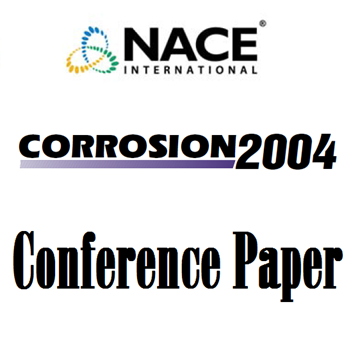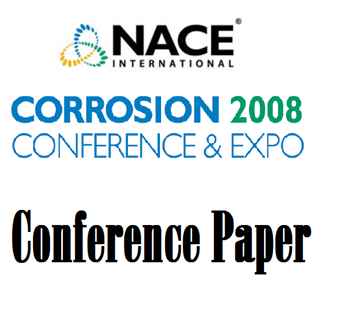Microbiologically influenced corrosion (MIC) causes leaks and plugging of fire protection sprinkler system (FPS) components, often within months of installation. MIC affects all types of FPS and system components and is accompanied by other forms of corrosion, principally those related to the action of oxygen. The principal source of microbes, oxygen, inorganic and organic nutrients for microbial activity are materials left in the FPS during constnaction and make-up water. Water is added to most FPS frequently, thereby adding new microbes, nutrients, and oxygen on a regular basis. MIC in FPS can be very severe due to microbial and chemical formation of deposits and a generous supply of oxygen, especially to the areas of the FPS closest to the make-up water source. Proper diagnosis and treatment of MIC in FPS requires biological and
chemical analyses of water and deposits from the FPS and make-up water to the FPS. Pipe samples from various locations in the FPS should be examined to determine the distribution and severity of MIC and the chemical nature of deposits and corrosion products. These data will provide information necessary to determine what type of treatment, if any, is necessary to keep or return the FPS to fully functional and safe status. New FPS should be treated to remove oils, dirt, and other materials which harbor bacteria, provide food for microbes, and shield bacteria from the action of biocides. FPS having existing, advanced deposits and corrosion should be cleaned to remove these materials. All FPS should be equipped with a device to deliver anti-microbial and oxygen scavenging chemicals to the FPS and all water entering the FPS. Traditional treatments using oxidizing biocides such as chlorine, even at levels far in excess of those required to control microbial growth in waters, do not control microbes or corrosion in FPS pipes and, in fact, contribute to generalized corrosion. This is due to the inability of the biocides to penetrate oils, dirt, and other materials on the internal surface of the FPS components. Tetrakishydroxymethyl phosphonium sulfate (THPS), a bioeide used in other industries, has proven to help dean oils, etc. from the pipe surface, kill all MIC bacteria, and eliminate oxygen in water added to the FPS. These actions lead to control of microbes, slimes, deposits, MIC, and oxygen-related corrosion. THPS also has very favorable environmental and toxicity profiles which should make its use in FPS acceptable to authorities having jurisdiction over FPS and water suppliers.




